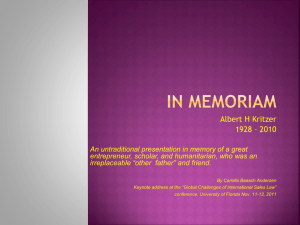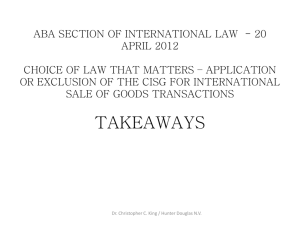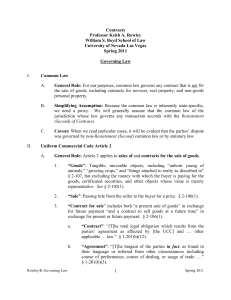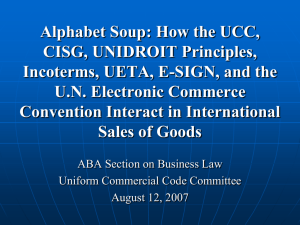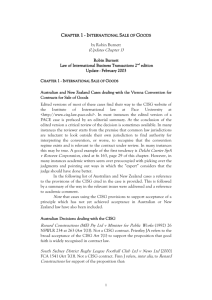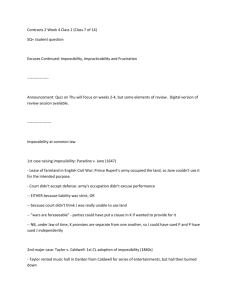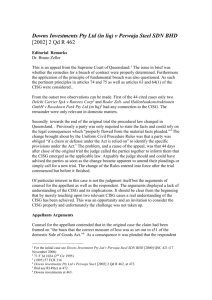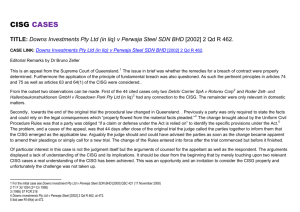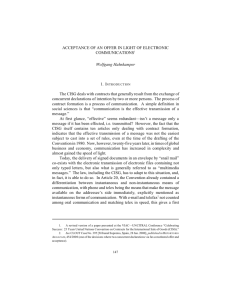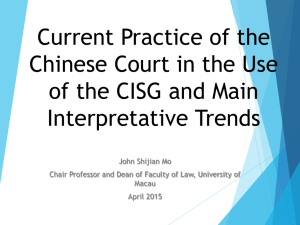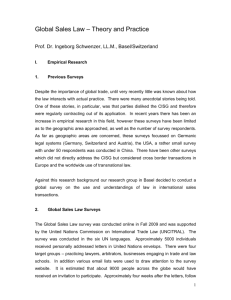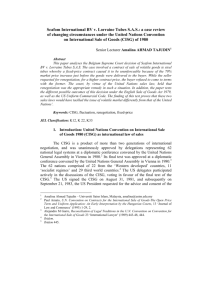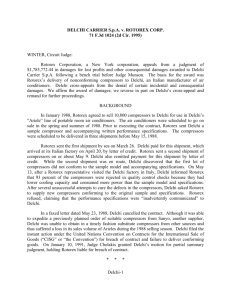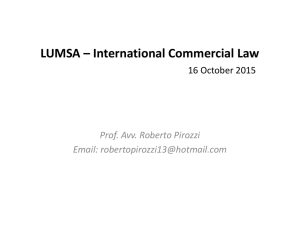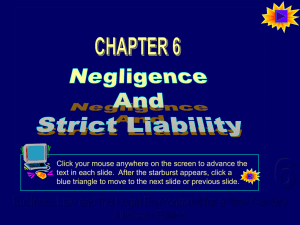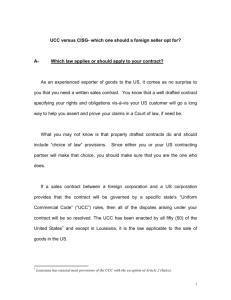2. the excuse of commercial impracticability
advertisement
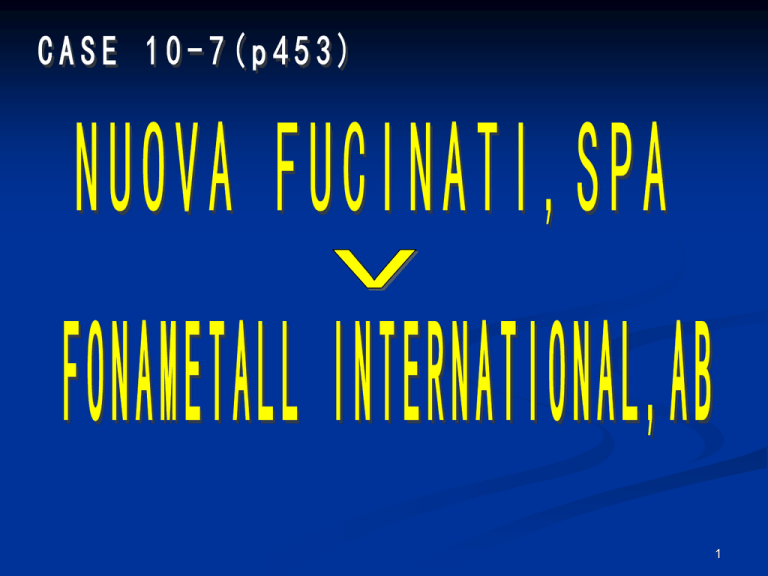
1 Background: Place:Italy,Civil Court of Monza,1993 Plaintiff: NUOVA FUCINATI,SPA of Monza Italy (seller) Defendant: FONDMETALL INTERNATIONAL,AB of Goteberg,Sweden (buyer) it is an international sale of goods contract. 2 Background: On february 3,1988,the plaintiff,Nuova Fucinati,SPA,of Italy, agreed to deliver 1000 metric tons of chromite(铬铁矿) to the defendant, Fondmetall International, AB of Sweden,between march 20,1988 and April 10,1998.When the plaintiff failed to make delivery, the defendant petition the Civil Court in Italy, for a decree of specific performance. On September 29,1988,the plaintiff inittated this proceeding to have the original contract set aside on grounds of commercial impracticability. According to the plaintiff, the price of chromite had risen 43% between the time of the contract and delivery, it was too costly for the plaintiff to perform without adjustment, which the defendant refused to accept. The defendant argued that the CISG governed contractual relationship and it didn’t provide for the excuse of commercial impracticability. 3 1.APPLICATION OF THE CISG ------whether the case is governed by CISG Article 1(1) of the CISG states: This Convention applies to contracts of sale of goods between parties whose places of business are in different States: a. when the States are Contracting States; or b. when the rules of private international law lead to the application of the law of a Contracting State. 4 APPLICATION OF THE CISG ------whether the case is governed by CISG The United Nations Convention came into force in Italy on January 1,1988. This was before the contract was concluded on February 3,1988. However, the Convention did not come into force in Sweden until January 1,1989[after the contract was concluded] 5 APPLICATION OF THE CISG ------whether the case is governed by CISG To conclude, the “special law” (the CISG) does not apply, the civil law is not preempted, and it must be applied as the parties directed that it should. The seller could invoke the excuse of commercial impracticability. 6 2. THE EXCUSE OF COMMERCIAL IMPRACTICABILITY A party is not liable for a failure to perform any of his obligations if he proves that the failure was due to an impediment beyond his control and that he could not reasonably be expected to have taken the impediment into account an the time of the conclusion of the contract… Indeed, the main remedy that the CISG grants to a nonbreaching party is the remedy of avoidance (or dissolution), and this remedy can only be invoked after a contract has been breached. The excuse of commercial impracticability is unrelated to a breach. [It is invoked by a seller before there has been a breach to avoid a contract that the seller can perform, but at great cost.] 7 ● Dismiss the plaintiff’s case Excuse: commercial impracticability Such excuse is allowed only when performance is so economically burdensome that the seller would not have the resources to perform. 8 Specific performance was rescinded and the case was remanded to the examining magistrate for further inquiry into the defendant’s claim for compensatory damages ● 9 Differences between CISG Article79(nonperformance based on “an impediment beyond control”) and the doctrine of “commercial impracticability” CISG didn’t applied to the dispute ■ 43% increase in price was not enough for the plaintiff to use the theory as an excuse for non-performance ■ 10 11
